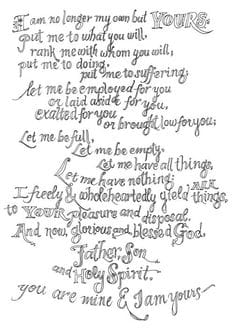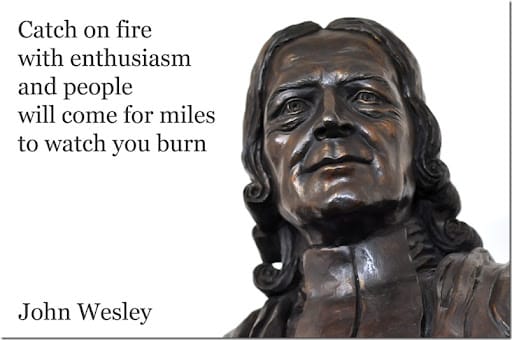 For God's foolishness is wiser than human wisdom, and God's weakness is stronger than human strength. -1 Corinthians 1: 25 I’ve just violated my resolution to ask guest writers to provide a column when I have commitments in Cabinet or Board of Ordained Ministry meetings. (My recalcitrance is the result of gluttony. I hate to give up that precious weekly writing process which feeds me. But let’s save vices for another column!) So this week’s thoughts are brief. Long car rides give me a chance to listen to interesting podcasts, some of which seem foolish but lead to wisdom. I have been a fan of foolishness for a very long time: as a clown, as a young mother, as a workshop leader. There’s nothing like a little foolishness to clear the clutter of competing expectations or demands on attention. Two talks have recently caught my attention, both about the social life of trees. (Hunh????)----- Suzanne Simard ‘s TED talk on “infinite biological pathways” is the account of a Logger’s granddaughter from British Columbia who learns to observe, measure and document trees’ relationships both with each other and with the elements of their environment. And Peter Wohlleban’s research on trees’ capacities and social life traces what actually happens in their root systems. Both these researches note that “orphan trees, “ planted in isolation from their root systems, are less robust that those that grow up in an inter related environment where photosynthesis is enhanced between tree species. An oak planted in an urban concrete surround will not live as long as one in a diverse forest system. Churches are ecosystems. The “orphans” find it so much harder to thrive in isolation. Paul wrote about the foolishness of the cross’s message. It seems foolish to think that one man’s sacrificial love so many generations ago should still be flowing as life giving sustenance through our interconnected human family. But there it is. Truth. Unexplainable and real. So is it really so foolish to believe that our lives are not just enhanced but able to flourish only when the simple priorities of God come into focus? In Joy, Karen He has told you, O mortal, what is good; and what does the LORD require of you but to do justice, and to love kindness, and to walk humbly with your God? –Micah 6:8
2 Comments
The third Sunday after Epiphany is approaching. The manger is in the rear view mirror. New decorations in stores march us toward the next commercial opportunity, Valentine's Day. But I'm still thinking about those wise guys. I know what they're traveling from, having left the manger. What are they traveling toward, ?
On the way to the manger, the wise ones knew where they wanted to go. The directions got a little complicated, (We know they were wise because they stopped for directions). But simple clarity about what they were following and why held the journey steady. "We follow the star sign so that we can pay honor to the newborn king of the Jews." I want to keep that kind of clarity in my own life. I want my course to be held steady, even when it gets complicated, by knowing who I'm journeying toward and what signs guide me. I also want a place in the story alongside the wise ones. Christmas always holds an edge of potential danger. As much fun as it is to receive gifts, it too easily becomes all about what I want. Maybe this is why the Wise Ones' story stays with me. They respond to God's great gift of vulnerable presence with gifts of their own: prophetic, generous, and a little odd. If we're authentic about following Christ signs today, what gifts will be called out of us? Answers are unique to each of us depending who we are and what road we travel toward the signs. They depend on where we're headed. Are you and your faith community trying to: Get back what you were? Sustain where you are? Stretch a little? Become something new? Sometimes we're headed one place in our head and another place in our heart. That, I suspect, was the real test the wise ones traveling to and from Bethlehem faced. They learned to recognize the danger signs as well as the sacred ones, and to shape their travel route so as not to defeat their original purpose. May God bless your coming in and your going out of the sacred spaces where God leads you. .  My 2017 started off in the best Wesleyan way, with covenanting worship and communion at Lisbon UMC in Lisbon Falls. During the “you pick hymn” sing, a man seated behind me asked for “Let There Be Peace on Earth.” From the immediate appreciative murmurs, I knew other hearts were as grateful to sing our hope and commitment aloud as mine was. Many of us have become familiar with “Wesley’s covenant prayer,” but we participate less often in the service in which it was set. The prayer itself has a complex history. On Sunday, Lisbon’s pastor, Elizabeth Bachelder Smith, reminded us Wesley himself first heard it in a French church’s service led by Richard Alleine. Personally, I remember one New Year’s Eve, doing last minute supper shopping, when I ran into a new parishioner from Jamaica. “I’ll see you tonight,” he said enthusiastically. I hated to tell him that true Watchnight services, that old Methodist tradition, were no longer as popular in the U.S.A. as they still are in the Caribbean. But the church I then served had begun a new tradition of annually combining Sunday morning worship services to covenant using a contemporary and interactive form of covenanting worship. It was deeply meaningful, though initially uncomfortable for a few used to a more presentational worship style. (We did offer a guided meditation in the chapel for the few who needed something with less movement.) Many, particularly younger family members, were taken by the 5th station. Here, the words of the Wesleyan Covenant were written out in a large scroll. We altered the planning instructions slightly and invited people to place a finger print by any word or phrase that reached out to them. The multi-colored result hung for several years creating conversation about aspects of covenant and reminding us of ours. As I worshipped with sisters and brothers Sunday in Lisbon, in an older form of the service, I was held by the Spirit from the first words of invitation: Commit yourselves to Christ as his servants. Give yourselves to him, that you may belong to him. Christ has many services to be done. Some are more easy and honorable; others are more difficult and disgraceful. Some are suitable to our inclinations and interests; others are contrary to both. In some we may please Christ and please ourselves. But then there are other works where we cannot please Christ except by denying ourselves. It is necessary therefore, that we consider what it means to be a servant of Christ. The opening phrases carry such joyful abandonment. There is such potential in the many services Christ offers! The following words lead me into the reality of what a life of service entails, through things I’ve learned or been challenged by in my own life and to other lives I’ve witnessed. Most of the service I’ve given Christ has been easy and honorable. But last month, reading about Marion Pritchard, who posed as a socially unacceptable single mother in order to move Jewish children out of harm’s way, I realized anew how what God honors is not always what we honor. It is necessary that we consider what it means to be a servant of Christ. May the early days of this New Year provide space for your own reflection, recommitment, and renewal. In God’s Grace, Karen |
Karen L MunsonA pastor and artist, I'm wondering while I'm wandering through God's marvelous creation. Archives
March 2020
Categories |

 RSS Feed
RSS Feed